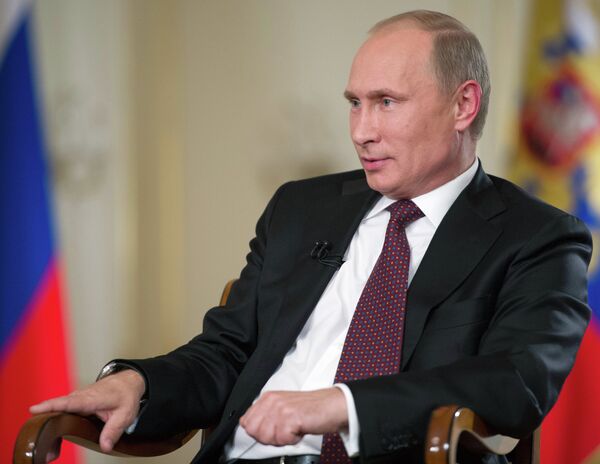MOSCOW, September 12 (RIA Novosti) – Over 200 Russian and foreign pundits, thinkers and politicians, including President Vladimir Putin, are due to meet next week in northwestern Russia to discuss the country’s role in the modern world.
“Who we are, what we want to become and how the world wants to see us” – those will be the main discussion topics at the forum held by the so-called Valdai club of Russia researchers, its co-founder Sergei Karaganov told journalists Thursday.
The club was launched in 2004 by the influential Council on Foreign and Defense Policy, a Russian think tank then headed by Karaganov, and the state-run RIA Novosti news agency as an international platform for policy discussion centered mainly on Russia.
Moscow’s position on many issues of global importance – from international terrorism and the global economy to foreign military involvement in sovereign countries, with Syria being the latest example – frequently differs from those in the West, with Washington often taking the lead there. In its decade of operation, the Valdai forum has become instrumental in letting the Kremlin explain its motivations and goals to foreign political scientists.
“The current foreign policy context gives us a lucky break as global interest is focused on the Syrian conflict and Russia’s position on it,” Svetlana Mironyuk, chief editor of RIA Novosti, told reporters at the press conference announcing the event, slated for September 16-19.
In previous years, pundits attending Valdai met at length with Putin and other key officials from his administration behind closed doors, where they could discuss sensitive issues freely. This year Putin will meet all the forum participants in the open for the first time, presumably next Thursday.
Other than sharing ideas with the country’s rulers, the main goal of the tenth Valdai meeting will be to galvanize Russia’s “intellectual class … to overcome its laziness and negativism and start thinking about the future and formulate national interests” after 20 years of largely doing nothing, Karaganov said.
A search for identity in the post-Cold War world is not just Russia’s challenge, said club member and head of the Washington, DC-based Center on Global Interests think tank, Nikolai Zlobin: It torments the United States, torn between notions of global dominance and legitimacy; Europe, struck by an economic crisis; the awakening Arab world; and a rapidly modernizing China.
This year’s Valdai forum, to be held in the Novgorod Region, is expected to have the broadest assortment of attendees: In addition to prominent think-tankers and senior Russian officials, ranging from members of the presidential administration to governors, organizers have also invited opposition politicians Vladimir Ryzhkov, Gennady Gudkov and Ilya Ponomaryov, as well as the outspoken newly elected mayor of Yekaterinburg, Yevgeny Roizman, and socialite-slash-sometime political activist Ksenia Sobchak.
The forum participants are also scheduled to meet with leaders of Russia’s Christians, Muslims and Jews to discuss interfaith dialogue.


